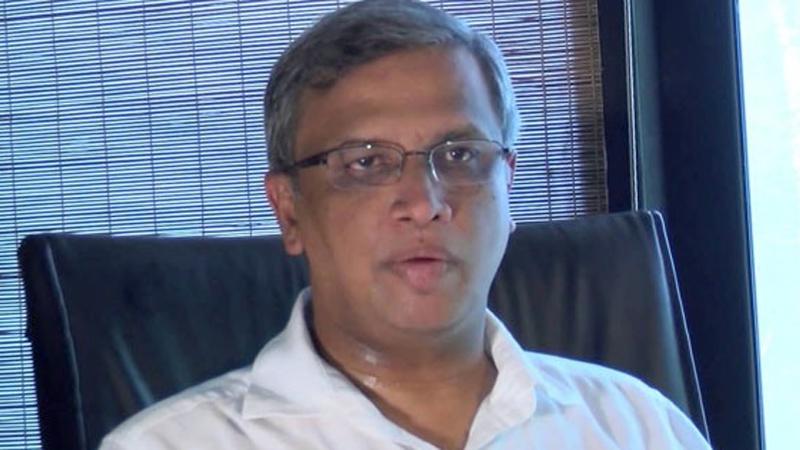
Chairman, Committee on Public Finance (COPF) M.A. Sumanthiran (MP) said the information provided by COPF is an estimated fiscal impact concerning each Budget proposal and that it will help Parliament to take decisions and hold an intelligent debate on this matter.
MP Sumanthiran told a press conference at the Parliamentary complex on Friday (April 5) that as a matter of policy, COPF does not say whether this Budget is good or bad. “ That is not what we do, it is far more technical.
COPF has to ensure whether the right information and fiscal impact of every proposal has been properly presented and made known to Parliament and the public.”
He said there is a lack of transparency in the information provided to COPF. One of the key issues that COPF has highlighted is the cost of vehicle expenditure which is enormous. The first explanation for the 12 times multiple in the cost of vehicle acquisition came in the form of information provided to COPF to corroborate the claim that the Budget variance was based on extraordinary purchases of utility vehicles. When inquired, a spokesman for the Ministry of Finance, first said that a large number of utility vehicles was procured mainly for the defence and railway sectors, but in 2017 and 2018 it didn’t tally.
Sumanthiran said that there was an overestimation of the revenue and heavy underestimation of what was to be spent or the liabilities and that the deficit was very small. The revenue targets are never achieved and it is always overestimated. When there is underestimation, particularly on the foreign loan component, the deficit is much larger than what is stated in the Budget. That impacts the money available for the Government for development too.
He said there was mis-estimation of foreign loan interest and that was identified in last year’s report too. This was something that we cannot accept because when there is a foreign loan as to when the payments are due are known well in advance. You can’t mis-estimate the loan repayment but the mis-estimation was as high as 52.8 percent in last year’s report.The 2016 report showed that it was as high as 61.2 percent - underestimated foreign loan repayment component. That is unacceptable and the explanations were not credible.
Unlike in the previous reports, we have stated the constraints and qualifications in bringing out the report, he said. We had very serious issues in obtaining information and that was due to the fact that the Ministry of Finance was used to a particular pattern of working.
This year, we wrote to the Ministry on February 12 ahead of the Budget and called for information in a particular format that we provided to them. Nevertheless, we didn’t receive all the information that we needed. However, in this report we have provided all information that the Ministry gave COPF at different times.
Sumanthiran said that when they compared Sri Lanka’s performance on the Open Budget Index (OBI), it was shocking because when they compared Sri Lanka’s OBI with peer countries, there were only three countries that had a lower score than Sri Lanka - Azerbaijan, Angola and Algeria. All other countries had much higher rankings in the OBI.
COPF was a new committee set up by Parliament. Earlier, we didn’t have such information during the Budget but still we had not set up a Parliamentary Budget office and we had asked for it. I feel that legislation will be introduced within the next few months, he said.
